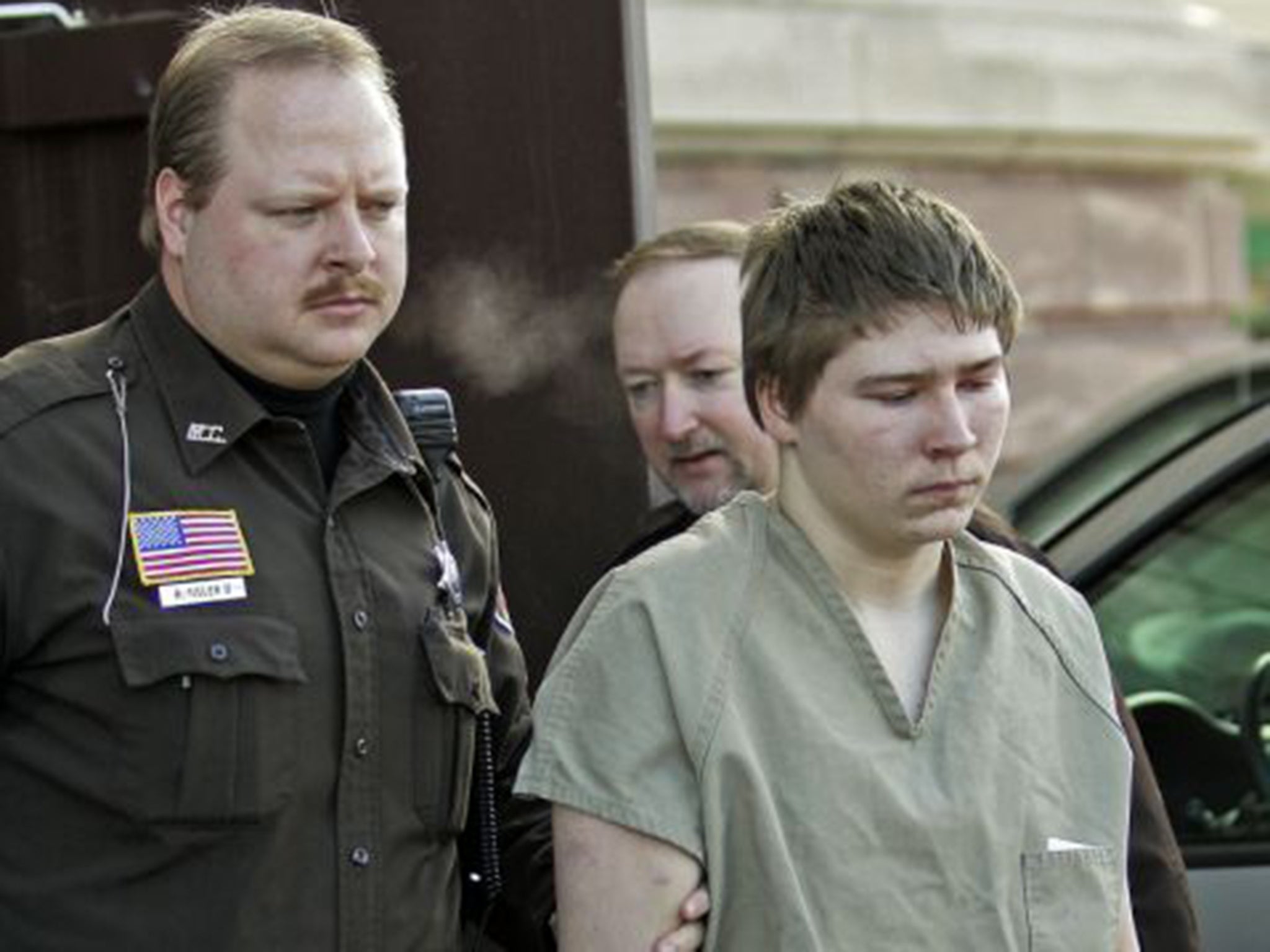Brendan Dassey's release from prison blocked
The 27-year-old was expected to leave prison this week after his homicide conviction was overturned in August

Your support helps us to tell the story
From reproductive rights to climate change to Big Tech, The Independent is on the ground when the story is developing. Whether it's investigating the financials of Elon Musk's pro-Trump PAC or producing our latest documentary, 'The A Word', which shines a light on the American women fighting for reproductive rights, we know how important it is to parse out the facts from the messaging.
At such a critical moment in US history, we need reporters on the ground. Your donation allows us to keep sending journalists to speak to both sides of the story.
The Independent is trusted by Americans across the entire political spectrum. And unlike many other quality news outlets, we choose not to lock Americans out of our reporting and analysis with paywalls. We believe quality journalism should be available to everyone, paid for by those who can afford it.
Your support makes all the difference.A federal appeals court in Chicago on Friday blocked the immediate release from prison of Brendan Dassey, a Wisconsin man whose homicide conviction was overturned in a case chronicled in the popular Netflix television documentary “Making a Murderer.”
A U.S. magistrate judge in August ruled that the guilty verdict returned by a trial jury in 2007 against Dassey, now 27, was based on a coerced confession he gave as a 16-year-old with a learning disability.
Wisconsin Attorney General Brad Schimel appealed the judge's ruling, and prosecutors sought to keep Dassey in prison while the case is under review.
On Thursday, a day before Dassey was scheduled to be freed, the Chicago-based 7th U.S. Circuit Court of Appeals sided with prosecutors. A three-judge panel ordered him to remain incarcerated “pending the outcome of the appeal,” but did not explain its reasoning.
Dassey and his uncle, Steven Avery, were convicted in separate trials of killing freelance photographer Teresa Halbach at Avery's home and scrap yard in 2005. Her charred remains were found in an incineration barrel and a burn pit on Avery's property, about 80 miles (130 km) north of Milwaukee.
The nephew, then 17, was found guilty of first-degree intentional homicide, second-degree sexual assault and mutilation of a corpse. Avery was convicted of first-degree intentional homicide and unlawful possession of a firearm as a felon. Both were sentenced to life in prison.
The case was the subject of the 10-part documentary “Making a Murderer,” which questioned the handling of the investigation and the motives of Manitowoc County law enforcement officials.
The documentary, which first went into production 10 years ago, recounted how Avery was convicted of an earlier, unrelated rape and sent to prison in 1985, serving 18 years before DNA evidence exonerated him and he was released.
He filed a $36 million federal lawsuit against the county, its former sheriff and district attorney in 2004. A year later, he and Dassey were accused of killing Halbach.
The Emmy-nominated documentary suggested that authorities planted evidence against both defendants, a claim rejected by the current sheriff.
Avery has filed a notice of appeal in his own case.
Reuters.
Join our commenting forum
Join thought-provoking conversations, follow other Independent readers and see their replies
Comments